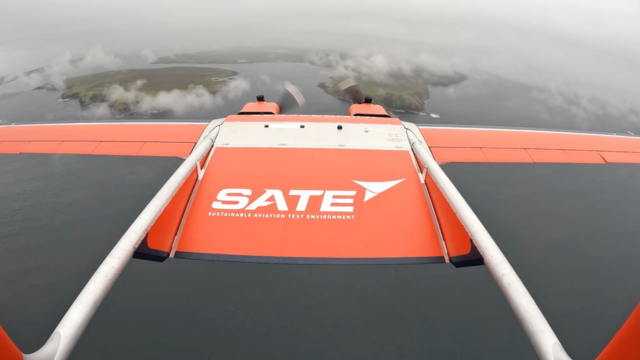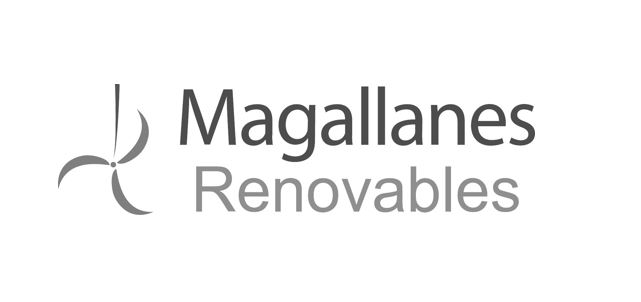SATE awarded funding to chart the future of sustainable aviation in the Highlands and Islands

Windracers ULTRA aircraft photographed during flight trials in Orkney, through the last phase of SATE funding (Credit Windracers, courtesy of SATE project)
Innovations in aviation such as cargo-carrying drones and electric planes are getting closer to taking off regularly in the Highlands and Islands thanks to new funding from the UK Government’s Future Flight Regional Demonstrator Competition.
Awarded by Innovate UK and the Department for Transport, a £199,912 funding boost will support the Sustainable Aviation Test Environment (SATE) project to deliver a regional sustainable aviation strategy.
The strategy will create a roadmap for new aviation technologies including regional drone operations, electric take-off and landing (eVTOL) or zero emission conventional take-off and landing (CTOL) aircraft.
This will outline how they could eventually support lifeline services, contribute to net zero ambitions and bring economic development to the Highlands and Islands.
Led by the regional transport partnership, the Highlands and Islands Transport Partnership (HITRANS), SATE established the UK’s first operationally based low-carbon aviation test centre, based at Kirkwall Airport in 2021. The consortium for this current phase of work includes 13 partners from across industry, technology developers, academia and regional government.
In-depth case studies will be undertaken across the region, focused on Orkney and Argyll & Bute, to inform the overall strategy. Findings will also help develop aviation projects for other remote and rural regions where aviation is essential.
David Holden, Regional Sustainable Aviation Manager for HITRANS said:
“The Highlands and Islands is uniquely placed for this work, with much of the region characterised by dispersed populations, remote and rural communities, and energy infrastructure challenges.
“The region is therefore dependent on aviation for access to key services such as employment, education, healthcare, and social and leisure activities.
“However, the cost of subsidising an increasing demand for regional air travel, in line with UK and Scottish Government net zero targets, make it vital that we explore more sustainable methods of flying to meet the needs of the region with both environmentally and economically efficient solutions.”
EMEC’s role in the project
As part of the project, EMEC will lead a dedicated study into existing aviation infrastructure in Orkney. This will assess how current assets and operational capabilities can support the transition to low-carbon aviation.
EMEC’s work will include:
- Mapping infrastructure
- Identifying gaps and opportunities for sustainable aviation integration
- Feeding findings into the broader project roadmap
Technology trials and future applications
A range of state-of-the-art technologies are already being tested in the region which could help overcome long-standing challenges of remoteness and connectivity costs. This new work aims to help bring trials from the test and demonstration stage to commercial development.
Pioneering projects could bring improvements for residents and visitors, as well as revolutionising logistics for businesses and healthcare.
Future uses of drone and low-carbon aircraft being explored include rapid delivery of medicines, such as chemotherapy drugs, significantly helping patients and cutting waste, improved logistics for high-value, time-sensitive industries such as seafood and aquaculture, and faster access to renewable energy infrastructure.
A SATE spokesperson said:
“These technologies offer a means to bypass traditional transport bottlenecks, enabling producers to maintain competitiveness by minimising spoilage and financial losses.”
SATE consortium partners
The SATE consortium includes:
- HITRANS
- Hybrid Air Vehicles
- Skyports Deliveries
- Streamline Shipping Agencies
- European Marine Energy Centre
- University of the Highlands and Islands
- Urban Foresight, Windracers
- Regional & Business Airports Group
- Loganair
- Shetland Islands Council
- Cormorant SEAplanes
- Cranfield Aerospace Solutions
Source: SATE
For more information on previous work through the SATE project, visit: sate.scot




